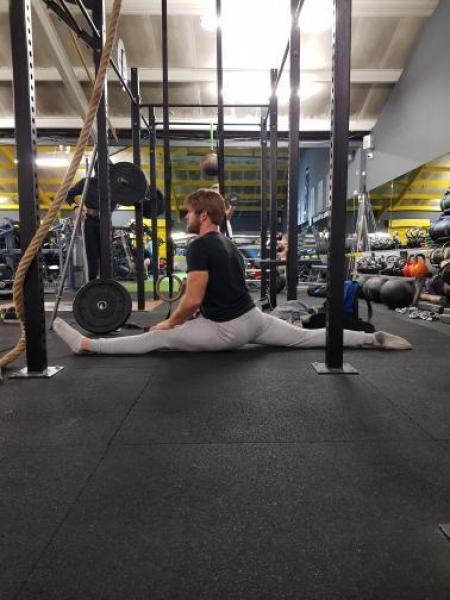Does Improved Mobility Really Make You Slower/Weaker?

Does a marked improvement in your mobility really hinder you as an athlete? An anecdotal look into an interesting question.
Research is pretty clear: static stretching prior to physical exertion has been shown to reduce power output within the muscle(s) stretched. The lengthening of the muscle deadens the nervous system’s signal and relaxes resting muscle tone, thus hindering the potential force output.
How much power loss depends on a few factors, the main one being how long the stretch is held for. With the common denominator being: the longer the stretch, the more power output lost. Accordingly, some people have hypothesised improved flexibility will have an overall reduction in performance across the board. And by ‘performance’, we mean anything pertaining to strength and force production; so think activities like jumping high, sprinting fast or high velocity moves such as Olympic lifts.
My anecdotal experiment
I was always a fast 100 meter sprinter. When I was in my teens I could naturally run an 11/12 second 100 meters with no focus on ideal start mechanics AND no real fitness base or conditioning. Anything power has always suited me. I love 3-5 rep all out sets. Give me an 800 meter run or 50 rep death set and I’d rather die.
Furthermore, I’m not naturally flexible at all. I didn’t touch my toes until I was 23/24 and my shoulders are still under par to this day. However, in recent times (as heavily documented on this site) I’ve worked relentlessly on my flexibility in the lower body, achieving a pancake and front splits very recently.

With my accolade in sprinting and having not sprinted for many years (at least not since becoming markedly more flexible), I’d been intrigued for far too long to not test my 100 meter time as of the present day……….
11.75 seconds.
And this was without a targeted warm up and actually took place as I was training a client on the track. One has to assume it would be slightly faster if I were used to sprinting regularly, had optimal start mechanics and primed the nervous system the right way, prior to going for it.
So the short answer is: No, flexibility definitely does not hinder athletic performance even in terms of power output (in my case at the very least).
We could end the post there but I would be doing you a sheer disservice by not breaking down some finer points well worth consideration here!
First, I haven’t spent the last few years solely improving flexibility. I’ve worked diligently on my body across the board – obtaining a plethora of calisthenics skills, strengthening the lower body both bi-laterally and uni-laterally, working on personal weaknesses, figuring out what works for me and of course, improving my flexibility.
It would be a completely different experiment to just solely work on nothing but flexibility for a few years and then test your max speed.
Another key factor is the means at which I improved said flexibility………..it wasn’t a case of just passively stretching and relaxing for minutes on end, instead I employed lots of techniques designed to re-pattern the nervous system and build strength in lengthened positions, which has the effect of strengthening and activating muscles at length where they were previously weak.
All in all it stands to reason really that an athletic approach should, at the very least, retain, if not build, more power and overall athleticism. So fear not, if you want to work on flexibility but are worried it will impede your performance, it won’t.
For more info on effective mobility training, check out the links & resources below!
- How I Achieved A Flat Front Split As An Adult Male
- 5 Keys To LONG TERM Flexibility Gains
- Calisthenic Movement’s ADVANCED Mobility Program Review!
- How Long Does It Take To Drastically Change Your Flexibility?
- A Simple & Fast Way To Work On Your Mobility
- Emmet Louis’ Modern Methods Of Mobility 2017 – In Review
Categories
JR @ Straight-Talking-Fitness View All
The 'brains' behind StraightTalkingFitness, a site all about discovery that leads to strength in all formats; fitness, mental, emotional and spiritual. Everything starts from within and projects outwards. Master the body, master anything and everything.


Very interesting discussion! I can’t say anything about being slow or weak, but it terms of healthy joint and muscle longevity, flexibility is an essential trait.
Completely agree. Quality of movement is a huge factor in anti-aging. I think in many ways this quashes the ‘a tight muscle is a strong muscle’ theory.